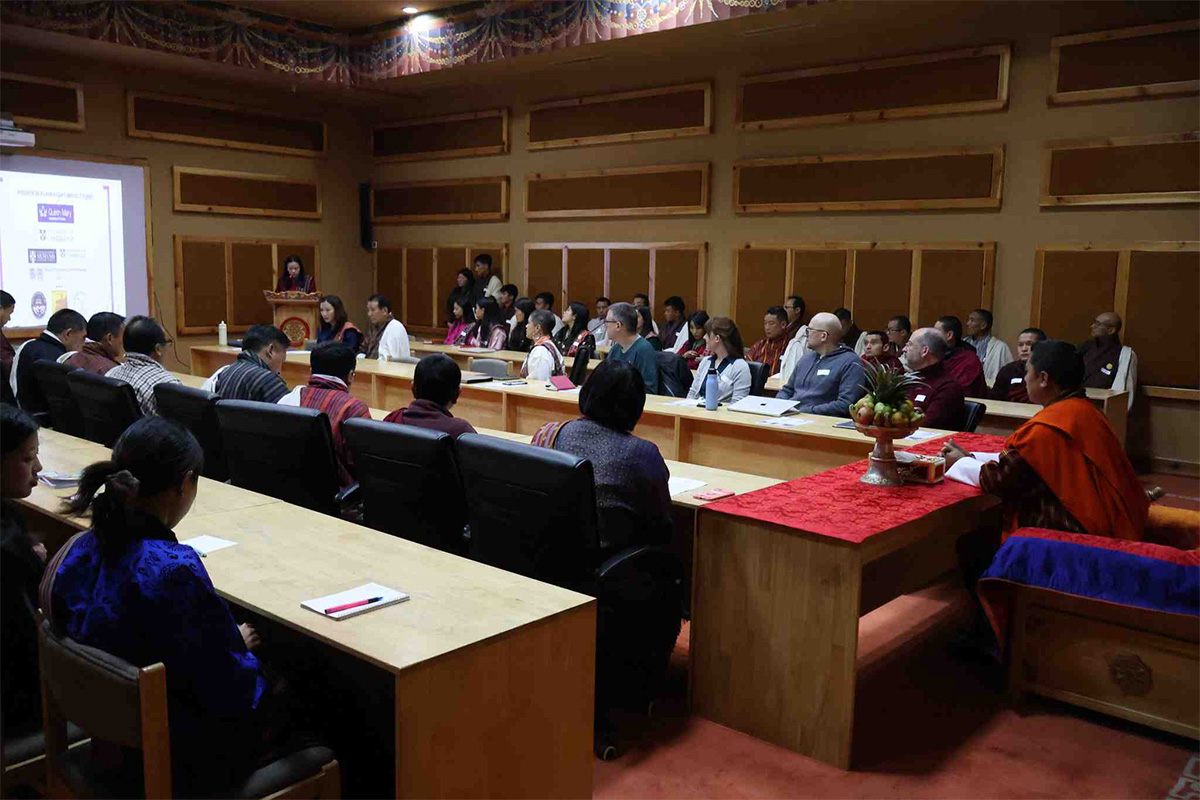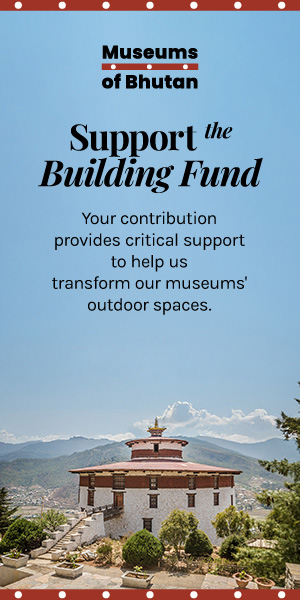Our Museums
Educational and Resources

Bhutan's museums serve as dynamic centers of learning and cultural preservation, playing a vital role in educational and resource development. The National Museum of Bhutan and Royal Heritage Museum regularly host students from across the country, offering deeper understanding of the heritage collection through guided tours, workshops, and digital archives.
As critical research centers for Himalayan studies, the museums can provide scholars with access (upon special request) to rare artifacts, ancient manuscripts, and specialized reference materials.
The museums have hosted significant academic symposiums, bringing together scholars and practitioners. Some of the key themes explored include:
- The Intangible Culture of Bhutan: Delved into folk tales, traditional dance, cuisine, and regional dialects, bringing to life the richness of Bhutan’s intangible heritage.
- Fortresses of Bhutan: Researchers examined the architecture, function, and evolution of these emblematic structures, reflecting Bhutan’s historical resilience.
- The Essence of Bhutanese Culture: Going beyond surface-level traditions, this symposium delved into subtle practices—traditional medicine, the preparation of ara (Bhutan’s traditional alcoholic beverage), death rituals, New Year celebrations, and the worship of local deities.
- The Soul and Substance of Bhutan: Scholars and local experts discussed the history of monasteries, temple conservation, the richness of Bhutanese performance arts, and the significance of masked dances.
Through innovative outreach programs, the museums extend their commitment to community engagement. Traveling exhibitions bring cultural education to remote areas, while documentation projects preserve vanishing oral histories and intangible heritage. Digital initiatives ensure Bhutan's cultural wealth reaches global audiences while being preserved for future generations.
Bhutan's museums serve not only as custodians of heritage but also as catalysts for human capital development. Through the promotion of cultural literacy via symposiums, the advancement of scholarly research, and the provision of lifelong learning opportunities, these institutions play a vital role in ensuring the continued relevance and vitality of Bhutan’s living traditions amid a rapidly evolving global landscape. The published proceedings from their academic forums remain important references for cultural preservation initiatives across the Himalayan region.

